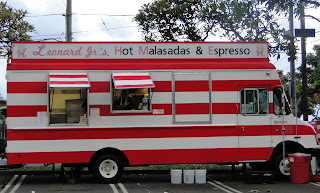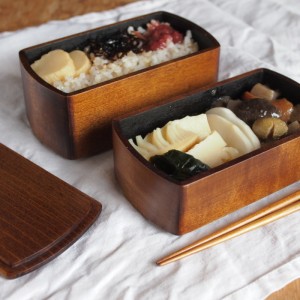Aloha ‘āina
The
state of Hawaii is known for its beautiful tropical landscape. The
steep mountains jet out of the sea going from sea level to 2000 feet in a
very short distance. Only the larger islands (there are 136 islands in
total) have enough flat land for towns and cities to be established.
This land restrictive lifestyle poses a major problem when it comes to
material waste, making recycling a must.
When I moved back to the Midwest I was taken off guard by having to pay to recycle. Paying to recycling moves if from a necessary way of life to a luxury. Many of my friends do not recycle because of its rising cost to the resident. Ironically even landfills in St. Louis become full and new landfill facilities must be established. Not so ironic is how when a family begins to recycle they will find their recycle bin fills to the brim and their waste can needs are cut in half. It's easy to assume then that our landfill needs could also be cut in half if more households were encouraged to recycle.
As responsible as it may seem to use recyclable containers and material, unless those items make it to a recycling facility they simply do not get recycled. They become landfill waste just like everything else taking hundreds of years to breakdown, if ever. Recycling is a must, but it often falls short because the recyclables end up in the trash.
Another approach to reducing landfill waste is composting. Items made
from compostable material will break down in a matter of only 90 days.
Compostable items (such as forks and plate ware) are made from natural resources such as sugarcane and
cornstarch. They are as sturdy as Styrofoam and plastics, but they
currently cost 2 to 3 times as much to purchase. The high cost is due to
supply and demand. As more establishments begin to use these Eco
friendly products the price is predicted to drop. In the mean time Buzz's Hawaiian Grill views compostable products as something worth investing in. All of the containers and utensils given out by Buzz's are 100% compostable. When we say all, we mean ALL, even our straws, to-go lids and carry out bags.
 Another composting method is to
separate items such as coffee grounds and vegetable scraps placing them
in a compost bin of your own. As this compost breaks down rich soil is formed. This compost may be
added to your flowerbeds or garden. Natural fertilizer. Notice all the pineapple tops in our compost bin? Compostable plate-wear and utensils may also be tossed into a compost bin.
Another composting method is to
separate items such as coffee grounds and vegetable scraps placing them
in a compost bin of your own. As this compost breaks down rich soil is formed. This compost may be
added to your flowerbeds or garden. Natural fertilizer. Notice all the pineapple tops in our compost bin? Compostable plate-wear and utensils may also be tossed into a compost bin.

Not all restaurants, or food trucks, put out this type of effort to protect the environment. As a member of the Green Dining Alliance we open our doors to annual audits which leads to recommendations from the GDA on how Buzz's Hawaiian Grill can improve our foot print on the local environment. These are efforts we see as worth their time and expense.
Take a look here at the food trucks and restaurants in the St. Louis area that hold certifications from GreenDining Alliance. If the environment means something to you, you might thank your favorite dining establishment for saying no to Styrofoam.
When I moved back to the Midwest I was taken off guard by having to pay to recycle. Paying to recycling moves if from a necessary way of life to a luxury. Many of my friends do not recycle because of its rising cost to the resident. Ironically even landfills in St. Louis become full and new landfill facilities must be established. Not so ironic is how when a family begins to recycle they will find their recycle bin fills to the brim and their waste can needs are cut in half. It's easy to assume then that our landfill needs could also be cut in half if more households were encouraged to recycle.
As responsible as it may seem to use recyclable containers and material, unless those items make it to a recycling facility they simply do not get recycled. They become landfill waste just like everything else taking hundreds of years to breakdown, if ever. Recycling is a must, but it often falls short because the recyclables end up in the trash.
 |
| This container is made from sugarcane |
 Another composting method is to
separate items such as coffee grounds and vegetable scraps placing them
in a compost bin of your own. As this compost breaks down rich soil is formed. This compost may be
added to your flowerbeds or garden. Natural fertilizer. Notice all the pineapple tops in our compost bin? Compostable plate-wear and utensils may also be tossed into a compost bin.
Another composting method is to
separate items such as coffee grounds and vegetable scraps placing them
in a compost bin of your own. As this compost breaks down rich soil is formed. This compost may be
added to your flowerbeds or garden. Natural fertilizer. Notice all the pineapple tops in our compost bin? Compostable plate-wear and utensils may also be tossed into a compost bin.
Not all restaurants, or food trucks, put out this type of effort to protect the environment. As a member of the Green Dining Alliance we open our doors to annual audits which leads to recommendations from the GDA on how Buzz's Hawaiian Grill can improve our foot print on the local environment. These are efforts we see as worth their time and expense.
Take a look here at the food trucks and restaurants in the St. Louis area that hold certifications from GreenDining Alliance. If the environment means something to you, you might thank your favorite dining establishment for saying no to Styrofoam.



Comments
Post a Comment